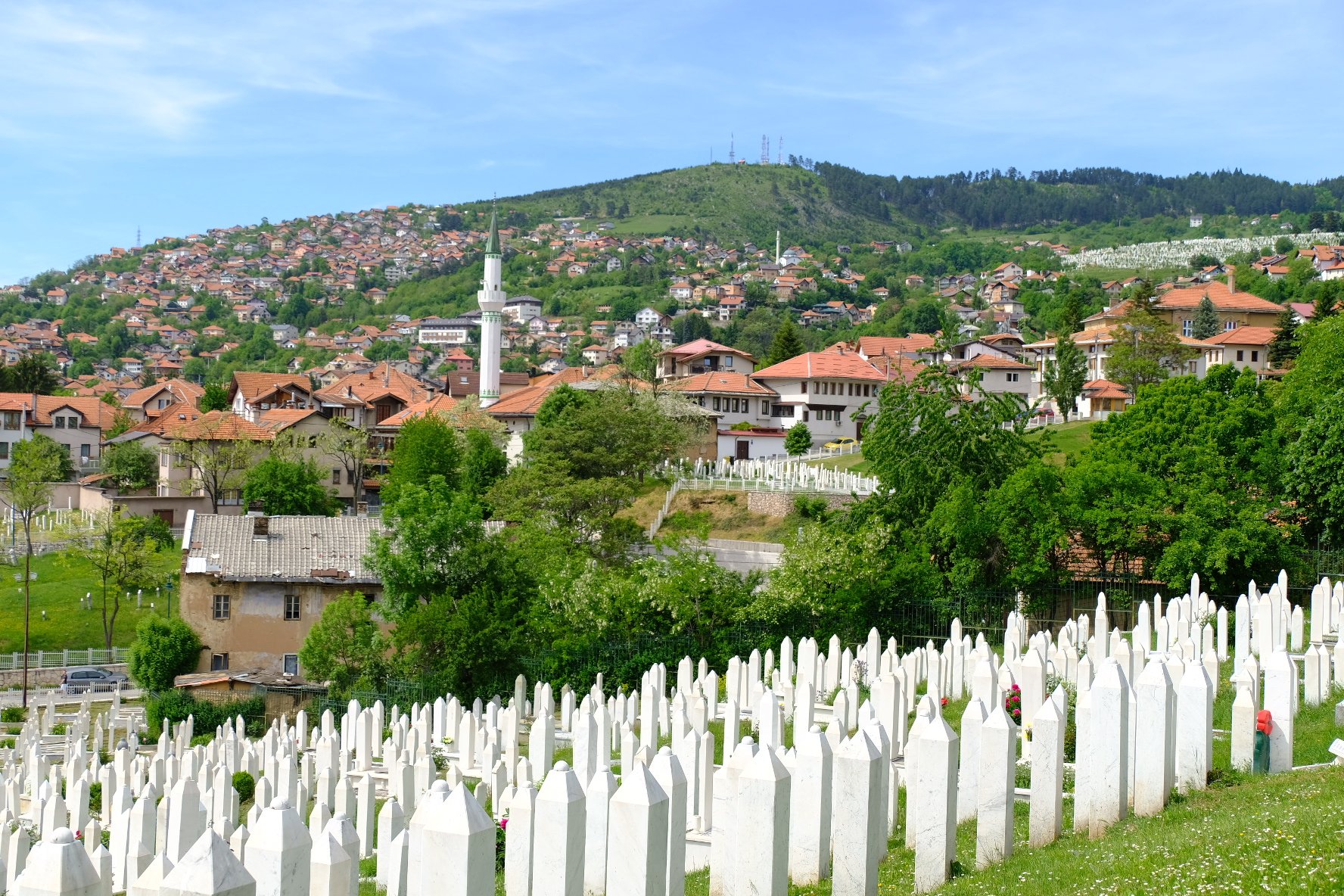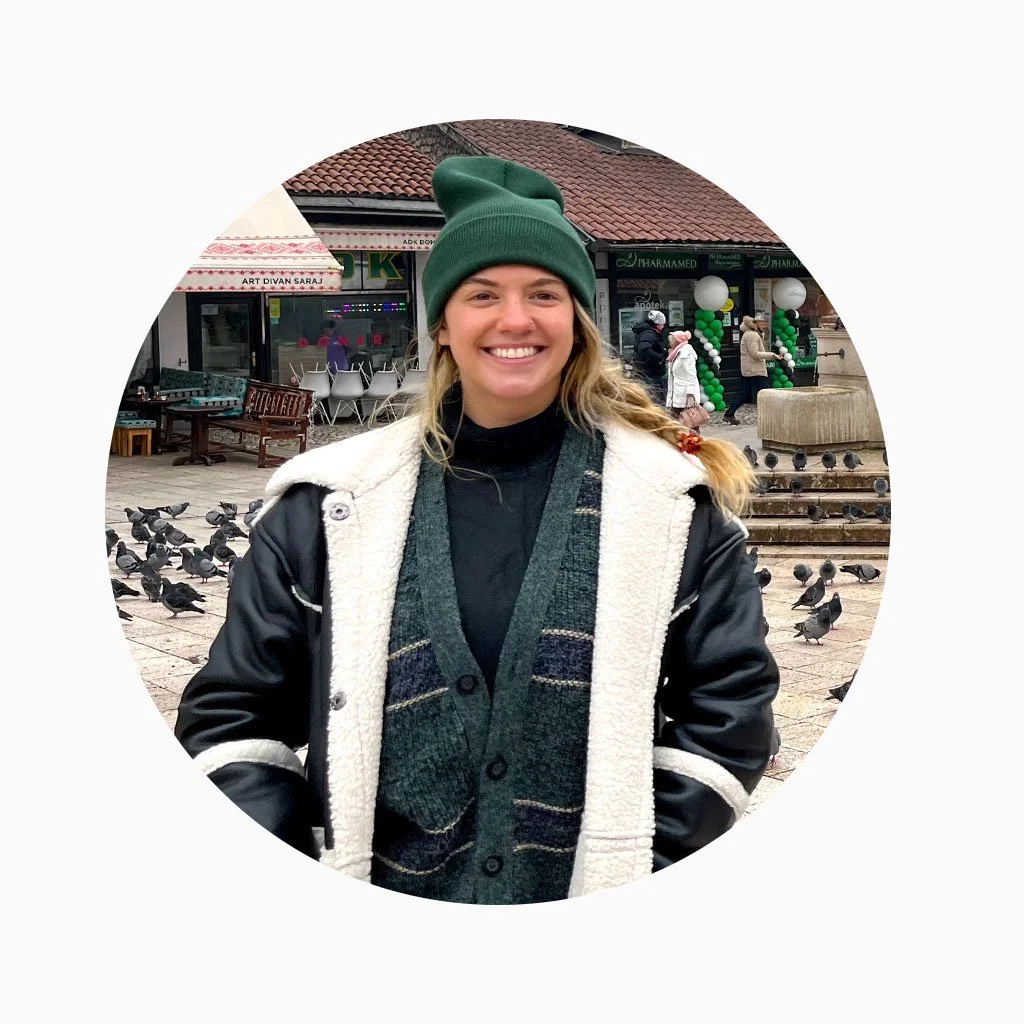Working Toward Trauma-Informed Peace in Bosnia and Herzegovina
by Julia Davies
One of the many great opportunities my internship at Peace Catalyst International provides is the space and access to work with local organizations. Those closest to the problems are who we should be asking for the answers, especially when considering the cultural, linguistic, and other barriers inherent to working in a foreign context. Thankfully, PCI’s Sarajevo directors are well-connected, and I have been set up with opportunities to engage with and learn from local peacebuilding work. At the organization called “Progres,” started and based in Sarajevo, I have the opportunity to talk with the women who work there, attend their programs, and write articles for their website. I will add some of them here, but I encourage anyone to check out their Facebook page here (you should be able to use the translate feature for English).
Progres Association was created in 2010 to support ideas developed by the pioneers of peace activism in Bosnia and Herzegovina (BiH). Their primary goal is to support young people in improving the quality of life for the direct and indirect victims of the Bosnian War in the 1990s.
To create this culture of peace, Progres focuses on inclusion, connection, and empowerment of individuals and communities. They envision a society in BiH that uses its diversity to build bridges instead of widening divisions.
Progres focuses its work on the inseparable themes of trauma and peace, launching their Trauma-Oriented Peace Work (TOMR) program in 2021. With the mission of building a trauma-sensitive society, Progres has launched two educational programs, one for educational professionals and one for young adults. This dual approach aims to address the long-neglected psychosocial needs of Bosnia and Herzegovina’s youth by increasing the accessibility of understanding trauma and promoting de-stigmatization. Progres believes BiH’s lack of trauma-sensitive culture hinders individual development, preventing their larger mission of a peaceful society.
The prevalence of transgenerational trauma, or the transfer of trauma from one generation to the next, in Bosnia and Herzegovina is not well understood or communicated. The older generations, who lived through and survived the war, never received the help needed to heal from that trauma. They are what psychologists sometimes call “stuck in trauma.” This results in the prevalence of alcohol, drug, and other abuses in families, furthering mental health issues for the country’s youth. Indeed, research supports the idea that childhood instability, even when controlling for income, significantly increases harmful behaviors in adulthood.
To combat this, the TOMR program teaches educational professionals how to become stable figures in their students’ lives, along with ways to create safety within the classroom. This is hard and emotional work. Teachers must be willing to address their personal trauma through looking inwards at their own emotions and triggers. For example, when a kid demonstrates rebellious behavior, they are taught to find out why they are acting out in this way, instead of reacting immediately with discipline.
Although a safe school environment is no replacement for a stable and loving home, it’s a step in the right direction. Sanja Čović, Vice President and Program Coordinator at Progres, says she hopes for the ability to create programming in the future for new parents to better educate them on early childhood development and creating a psychologically-safe environment at home. She has noticed the prevalence of mental health and behavioral disorders in young children beginning school, likely due to inherited trauma and lack of familial stability. Although many students and teachers are eager and excited to learn this information, the organization still faces pushback around mental health issues and peacebuilding, which are seen suspiciously “abnormal” by the previous generations and even some within younger generations.
Further, the hard and painful process of peace is often prevented in BiH by the persistence of ethnically-biased and conflicting narratives about events, victims, and responsible actors. This is perpetuated by the lack of constructive and inclusive dialogue about the past, making it more difficult for people to accept responsibility, face consequences, and mourn traumas.
Zerina Karaica-Čengić, psychologist and Program Coordinator at Proges, believes in confronting these seemingly competing narratives through sharing common experiences of suffering. By learning that others experience the same human emotions of anger, fear, and pain as we do, we can begin to “get out of our constant victimization.”
Throughout my work within the field of peacebuilding, I’ve learned that the ability to share personal experiences between different groups is one of the most impactful ways to forge common understandings. People connect with people, not with ideas or being told they should. “Other-ing” is much harder when you know someone who represents that “other.” Progres’s work successfully creates communities where people feel safe to share their trauma and experiences, and participants have reported that this is the biggest takeaway from their programs.
The process of rebuilding societies after conflict is long. It requires stabilization, safety, community, and empowerment, all aspects Progres works towards achieving. Through mental health awareness, trauma education, and building safe communities to diversify perspectives, Progres sees a positive future for BiH.
WANT TO JOIN OUR WORK IN BOSNIA & HERZEGOVINA?
Julia is a Peace Catalyst intern in Bosnia and Herzegovina. She is a recent graduate of Ohio State University, where she majored in history and political science with research distinction. During her three-month study abroad program in Rwanda, Julia worked with youth groups and women’s associations addressing transgenerational trauma and promoting forgiveness. Her research on collective memory and genocide memorials and their role in promoting reconciliation has given her a unique perspective on the power of peacebuilding. Learn more about Julia here.


